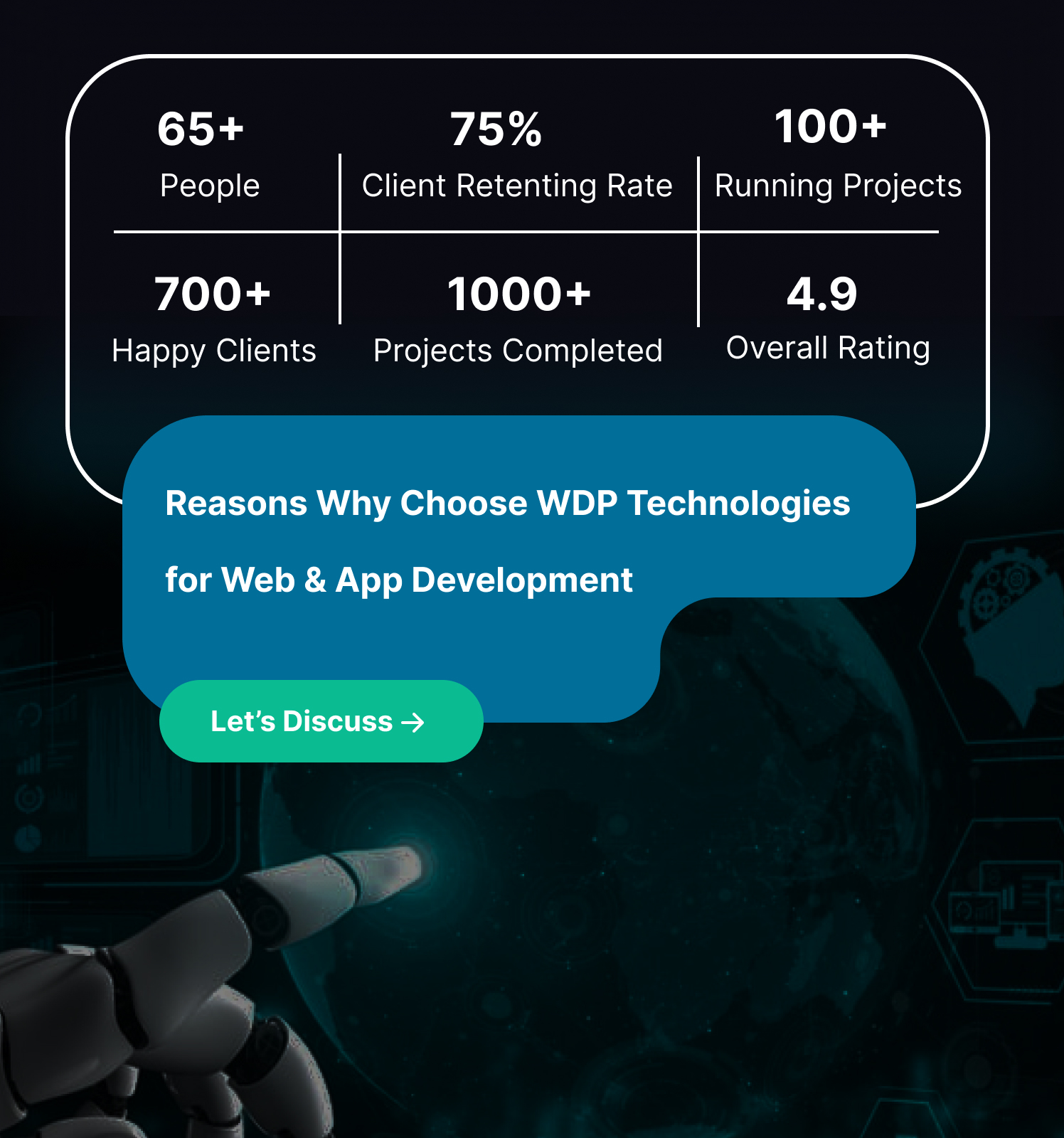Online auctions have changed the way people buy and sell goods, offering a convenient platform for users to find unique items and bargains from the comfort of their homes. In today’s digital age, the demand for efficient and user-friendly online auction websites is higher than ever.
Whether you’re starting fresh in the online auction world or aiming to level up your existing platform, online auction website development demands thoughtful planning and precise execution. In this comprehensive guide, we’ll walk you through the essential steps to develop a successful online auction platform that meets the needs of both buyers and sellers.
Overview Of Online Auction Website
Online auction websites are like online marketplaces where people can buy and sell things through bidding. Instead of a fixed price, buyers compete by placing bids, with the highest bidder winning the item. This can be a great way to find unique items or score a bargain on something you want.
These websites offer advantages over traditional auctions because you can participate from anywhere with an internet connection, and the selection of items is much broader. Whether you’re a seasoned collector or just looking for a fun way to shop, online auction websites offer a treasure trove of possibilities.
Rise Of Online Auctions
The online auction market is expected to reach a value of over USD 50 billion by 2028, growing at a staggering 12.36% annually. That’s a significant chunk of the online commerce pie. People love the convenience of bidding on the go! Mobile bidding is a major driver of this growth, with some reports estimating an 8.07% year-over-year growth rate in the online auction market fueled by mobile users.

Forget location limitations! Online auctions connect a global audience. This is particularly evident in regions like China, where the online auction market is thriving due to a growing digital consumer base.
Benefits Of Online Auction Website Development
Online auction website development offers a treasure trove of benefits for both aspiring entrepreneurs and established businesses. Here’s a breakdown of the key advantages:
1. Global Reach:
Compared to traditional brick-and-mortar auctions, online platforms transcend geographical limitations. Sellers can tap into a global audience, showcasing their products to a much wider pool of potential buyers. This opens doors to new markets and a significantly larger customer base.e.
2. Reduced Costs:
Setting up and running a traditional auction involves significant expenses – venue rentals, staff, marketing materials, etc. Online auctions eliminate many of these costs. There’s no need for a physical space, staffing is minimized, and marketing efforts can be targeted and cost-effective.
3. Convenience for Everyone:
Both buyers and sellers enjoy the ultimate perk – convenience. Buyers can browse and bid on items from anywhere, anytime, using their computers or mobile devices. Sellers can list items at their leisure, manage listings remotely, and streamline the entire sales process.
4. Increased Efficiency:
Online auctions are a well-oiled machine. Automated bidding systems ensure a smooth and efficient process. Features like automatic notifications and real-time bidding updates keep everyone informed and engaged. This translates to a faster buying and selling experience compared to traditional methods.
5. Enhanced Security:
Gone are the days of worrying about cash flow or the legitimacy of buyers. Online auction platforms integrate secure payment gateways, protecting financial information and ensuring safe transactions for both parties.
6. Niche Markets Thrive:
The beauty of online auctions is the ability to cater to specific interests. A platform can specialize in anything from vintage collectibles to rare car parts, creating a haven for niche communities and passionate collectors around the world.
Get in touch today to start building your custom auction platform
Steps for Online Auction website development
Whether you’re an entrepreneur looking to capitalize on this growing market or a business owner aiming to expand your online presence, developing your own online auction website can be a rewarding venture.
1. Planning Your Niche
Before diving into the technical aspects, take a step back and define your niche. What kind of products will your platform specialize in? Will it cater to a general audience or focus on collectibles, antiques, or a specific category? Understanding your target audience will guide the website’s features and overall user experience.
2. Understanding User Roles
Think about the different users who will interact with your platform and the functionalities they’ll need.
- Sellers: They’ll appreciate an easy listing process, secure transaction tools, and dashboards to manage their listings effectively.
- Buyers: Focus on providing search filters to find desired items, secure bidding options, watchlists to track their interests, and clear product information.
- Admin: An admin panel is crucial for managing listings, overseeing transactions, and handling disputes (if applicable).
3. Choose the Right Platform:
Selecting the right platform and technology stack is crucial for the success of your online auction website development. Consider factors such as scalability, flexibility, security, and ease of use. Popular options for building online auction websites include custom development using languages like PHP or Python, or using existing platforms like WordPress with auction plugins.
4. Design User-Friendly Interface:
Design a user-friendly interface that enhances the browsing and bidding experience for users. Ensure that the website is intuitive, visually appealing, and easy to navigate. Pay attention to responsive design principles to ensure that the website functions seamlessly across various devices and screen sizes.
5. Implement Essential Features:
Incorporate essential features that are necessary for an online auction website, such as user registration and authentication, product listing and bidding, payment processing, messaging, and notifications. Develop robust auction management tools for administrators to monitor and manage listings, bids, and user activity.
6. Integrate Secure Payment Gateways:
Security is paramount in online transactions. Integrate secure payment gateways that offer encryption and fraud protection to ensure safe and seamless transactions. Popular payment gateways like PayPal, Stripe, and Square offer APIs that can be integrated into your website for processing payments securely.
7. Test and Iterate:
Thoroughly test your online auction website to identify and fix any bugs or issues before launch. Conduct usability testing to gather feedback from real users and iterate on the design and functionality. Test the website’s performance, security, and compatibility across different browsers and devices to ensure a smooth user experience for all users.
8. Launch and Promote:
Once you’re satisfied with the development and testing, it’s time to launch your online auction website. Promote it through various channels, such as social media, email marketing, and online advertising. Offer promotional deals and discounts to attract users and incentivize them to participate in auctions. Encourage user engagement and interaction to build a thriving online auction community.
Different Types of Online Auction Website
There are many different types of online auction websites, each catering to a specific niche or category of products. Here are some of the most popular ones:

1. Automotive Auctions:
Automotive auction websites specialize in selling cars, trucks, motorcycles, and other vehicles through online bidding. These platforms may feature both new and used vehicles, as well as salvage or repossessed vehicles. Examples of such platforms include Copart and AutoBidMaster.
2. Real Estate Auctions:
Real estate auction websites facilitate the buying and selling of properties, including residential homes, commercial properties, land, and investment properties. These platforms often feature both traditional auctions and foreclosure auctions. Examples of real estate auction platforms are Auction.com, RealtyBid, and Hubzu.
3. Art & Collectibles Auctions:
Art and collectibles auction websites focus on selling fine art, antiques, rare collectibles, and memorabilia through online bidding. These platforms attract collectors and enthusiasts seeking unique and valuable items. Examples include Sotheby’s, Christie’s, and Heritage Auctions.
4. Jewelry & Luxury Goods Auctions:
Jewelry and luxury goods auction websites specialize in selling high-end jewelry, watches, designer handbags, and other luxury items through online auctions. These platforms cater to buyers looking for exclusive and premium products. Examples are Bonhams Jewelry Auctions, Heritage Auctions Luxury Accessories, and TrueFacet.
5. Government Surplus Auctions:
Government surplus auction websites auction off surplus goods, equipment, and vehicles from government agencies, including federal, state, and local governments. These auctions may include items such as office furniture, electronics, vehicles, and industrial equipment. Examples of such platforms are GovDeals, Public Surplus, and GSA Auctions.
6. Charity & Fundraising Auctions:
Charity and fundraising auction websites host online auctions to raise funds for charitable causes and nonprofit organizations. These auctions may feature donated items, experiences, or services, with proceeds going towards supporting charitable initiatives. Examples include Charitybuzz, BiddingForGood, and eBay for Charity.
7. General Merchandise Auctions:
General merchandise auction websites offer a wide range of products across various categories, including electronics, home goods, apparel, and more. These platforms cater to both individual sellers and businesses looking to liquidate excess inventory. Examples of such platforms are eBay, Bonanza, and eBid.
Key Features to Implement for Online Auction Website Development
Here are some key features to consider when developing an online auction website. By incorporating these key features into your online auction website, you can create a robust and user-friendly platform that fosters trust, transparency, and efficiency in the buying and selling process.
1. User Registration & Authentication:
User registration and authentication are fundamental aspects of an online auction website. Users should be able to create accounts securely and log in to access auction features. Implementing email verification and password protection ensures the security of user accounts, safeguarding personal information and transactions.
2. Product Listing & Catalog Management:
Sellers need a platform to list their items for auction effectively. This feature should allow sellers to provide detailed descriptions, upload images, and specify relevant attributes for their products. Additionally, offering management tools for sellers to edit, delete, or relist items enhances the listing process and improves user experience.
3. Bidding Functionality:
Bidding functionality lies at the core of an online auction website. Users should be able to place bids on listed items, driving competition and determining the final sale price. Providing real-time bidding information, such as current highest bid and bid history, keeps users informed and engaged throughout the auction process.
4. Payment Gateways & Secure Transactions:
Integrating secure payment gateways is essential to facilitate smooth and secure transactions between buyers and sellers. Supporting various payment methods and ensuring PCI-DSS compliance protects sensitive financial information and enhances trust in the platform.
5. Messaging and Notifications:
Enabling communication between buyers and sellers through messaging features fosters interaction and facilitates transactions. Notifications, such as outbid alerts and auction end reminders, keep users informed about important events, enhancing their overall experience on the platform.
6. Auction Management Tools:
Administrators require robust tools to manage and monitor auctions, listings, and user activity effectively. These tools enable administrators to review and moderate listings, handle disputes, and enforce site policies, ensuring a fair and secure marketplace for all users.
7. Mobile Responsiveness :
Ensuring that the website is fully responsive and compatible with various devices and browsers is essential for reaching a wide audience. A mobile-responsive design provides a seamless user experience across different screen sizes, enhancing accessibility and usability.
8. Search and Filtering Options:
Robust search and filtering capabilities help users find specific items quickly and efficiently. Offering options to filter search results by category, price range, and location streamlines the browsing experience, making it easier for users to discover relevant listings.
9. Feedback and Rating System:
Implementing a feedback and rating system allows buyers to share their experiences and provide feedback on sellers. This system builds trust and credibility within the community, helping users make informed decisions when engaging in transactions.
10. Security Measures:
Security is paramount in an online auction website to protect user data and prevent fraudulent activities. Implementing SSL encryption, CAPTCHA, anti-fraud detection, and regular software updates ensures the integrity and security of the platform, fostering trust among users.
Cost For Online Auction Website Development
The cost of developing an online auction website can vary significantly depending on several factors. Here’s a breakdown to help you estimate the potential investment:
1. Factors Affecting Cost:
🔹Complexity of Features: Simple websites with basic functionalities will cost less than feature-rich platforms with advanced options like real-time bidding, proxy bidding, and complex search filters.
🔹Development Approach: Building from scratch grants control but demands high investment. SaaS platforms offer cost-effectiveness but limited customization. Website templates are budget-friendly but lack scalability. Choose based on needs and resources.
🔹Design and User Interface (UI): A user-friendly and visually appealing interface requires skilled designers, impacting the overall cost.
🔹Development Team Location: Hiring developers in regions with lower hourly rates can influence the total cost.
2. Cost Estimates:
- Simple Website (Basic Features): $3,000 – $15,000
- Mid-Range Platform: $15,000 – $25,000+
- High-End Platform (Advanced Features): $30,000++
3. Additional Considerations:
- Domain Name and Hosting: These costs are relatively minimal, typically ranging from $10 to $100 per year for a domain name and $10 to $100 per month for website hosting.
- Ongoing Maintenance: Maintaining a website involves updates, security measures, and potential bug fixes. Factor in these ongoing costs.
Choose WDP Technologies For Top- Notch Online Auction Website Development
For top-notch online auction website development, WDP Technologies is the ultimate choice. With expertise in web development and e-commerce, WDP delivers innovative solutions. Our skilled team ensures user-friendly interfaces, secure transactions, and responsive design. Trust WDP for an exceptional online auction experience.
Ready to launch your own auction website? Let’s turn your vision into reality.
Conclusion
Successful online auction website development requires planning, technical know-how, and a user-centric approach. By following this guide and leveraging available resources, you can turn your vision of a thriving online marketplace into reality. Remember, a successful auction platform fosters a sense of community and excitement, so keep your focus on creating a smooth and engaging experience for both buyers and sellers.












